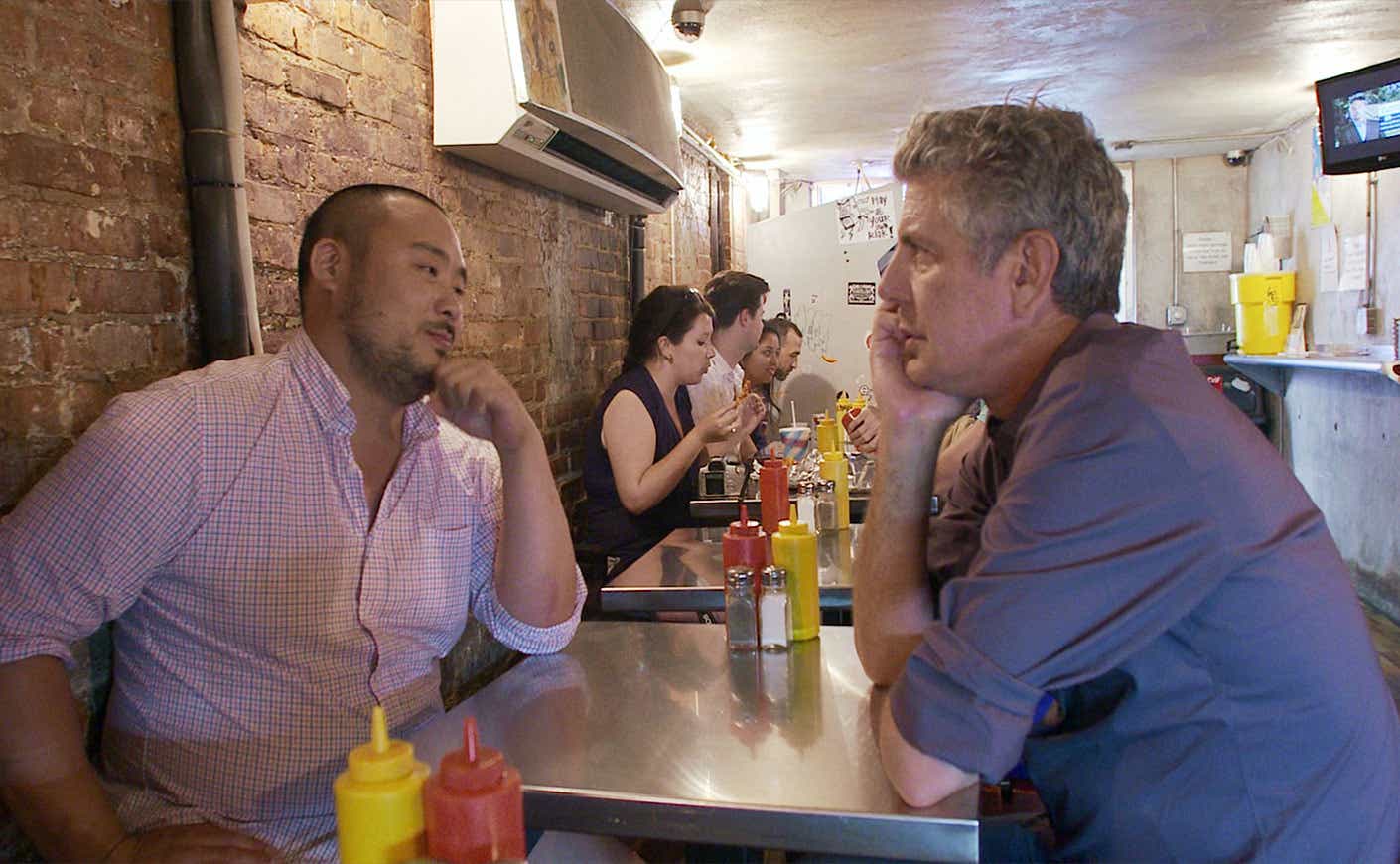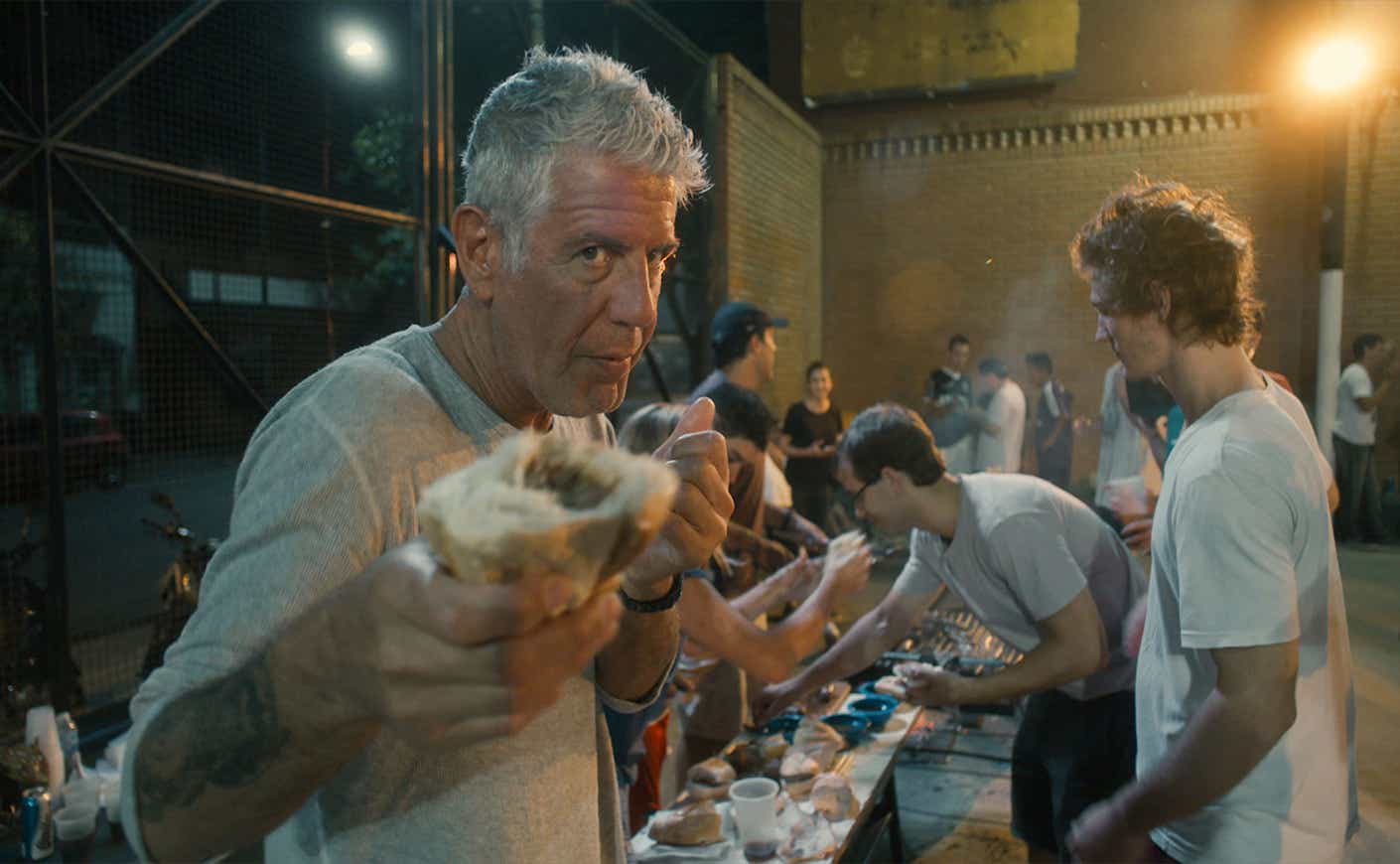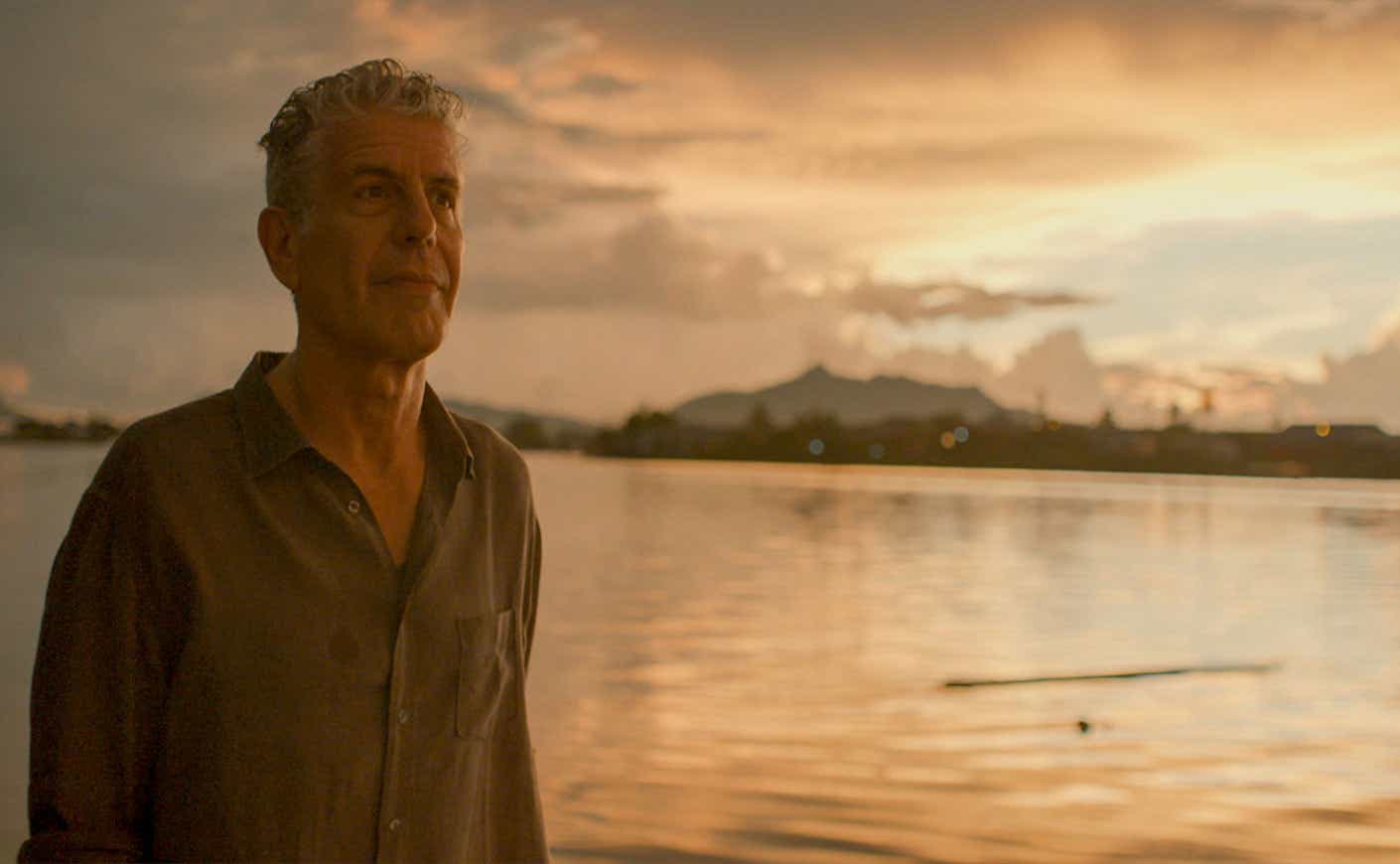When the filmmaker Morgan Neville first started making his documentary on Anthony Bourdain in the fall of 2019, the death of the late chef and globetrotting TV host was still fresh for many—including his own friends and loved ones.
That’s why the Academy-award-winning documentarian considers the interviews for the documentary, Roadrunner: A Film About Anthony Bourdain, some of the most difficult he has ever done. Many of those featured in the doc were not only still grieving, but also talking about Bourdain's death for the very first time.
“It's not a stretch to say they were therapy sessions,” Neville told KCM. “Many times, people hadn't even talked to their loved ones about their feelings.”
The film features interviews with Bourdain's ex-wife, Ottavia Busia, chef friends Éric Ripert and David Chang, TV producers Lydia Tenaglia and Christopher Collins, members of his production crew, and Queens of the Stone Age frontman Josh Homme, who also wrote a song for the film. “It was just a matter of trying to tell the story as completely as we could tell it,” said Neville. “I think everybody bought into that at the end of the day.”

But the doc notably doesn’t include other key figures in Bourdain's life, like the Italian actress Asia Argento, whose two-year relationship with Bourdain faced scrutiny, especially in the aftermath of his death. Neville has said that he didn’t interview Argento because he didn’t think she would offer any more clarity: “I felt like once you start to get into the details of the complications of the relationship, it just begs 10 more questions.”
Neville, director of the heartwarming Fred Rogers tribute Won’t You Be My Neighbor? and the Oscar-winning doc 20 Feet From Stardom, was determined to capture the “essence of what made [Bourdain] tick.” The film is therefore told in much of his own voice, with the aim of painting a fuller portrait of how the New York chef was catapulted to fame in middle age.
This meant including unseen footage from Bourdain's TV series Parts Unknown, along with an unfinished documentary and Instagram stories that gave a glimpse into the rocky final year before his death. One question Roadrunner grapples with is unanswerable: Why did Bourdain kill himself? When he was found dead at age 61 in his hotel room in Strasbourg, France, it was a shock to the world and those closest to him.
“I think people were worried about him, but I don't think anybody thought he would actually kill himself when he did, as he did, because he'd been joking about it for 20 years,” Neville said.
Neville believes Bourdain's mental health struggles and substance abuse — both of which the chef addressed on camera — played into the star's death. “At the end of the day, he always had demons,” said Neville. “He always had addictions.”
Bourdain was also facing the pressures of constant work and travel while trying to parent his young daughter, who makes an appearance in the film. “Something positive that can come out of the film is just having a real discussion about suicide,” the director said.

Neville, also behind the food-themed documentary series Ugly Delicious, took great care to show the TV host’s continued impact on the culinary world. Bourdain championed seriously delicious food — whether it came from a Michelin-starred restaurant or a food truck. The documentarian told KCM that the rise of street food's popularity over the last 20 years in the U.S. could even be attributed to Bourdain: “He did more to elevate that type of discussion than just about anybody.”
Neville believes the chef also saw how the conversation around food could be used to broach tougher, often fraught, issues like politics and war. “He understood before most of us that just by talking about food, we can talk about everything else,” Neville said. “Food becomes a Trojan horse to unpack all of these other things, and he was doing it at the very beginning.”
Like many of the chef's fans, Neville credits Bourdain for helping shape his view of the world: When he thinks of Iran or Antarctica, he conjures up images from Bourdain’s shows, like Parts Unknown.
“My understanding of people and places around the world were filled up with images he created for me,” said Neville. “And that's not a small thing.”









